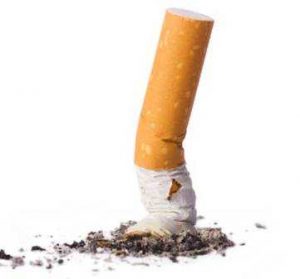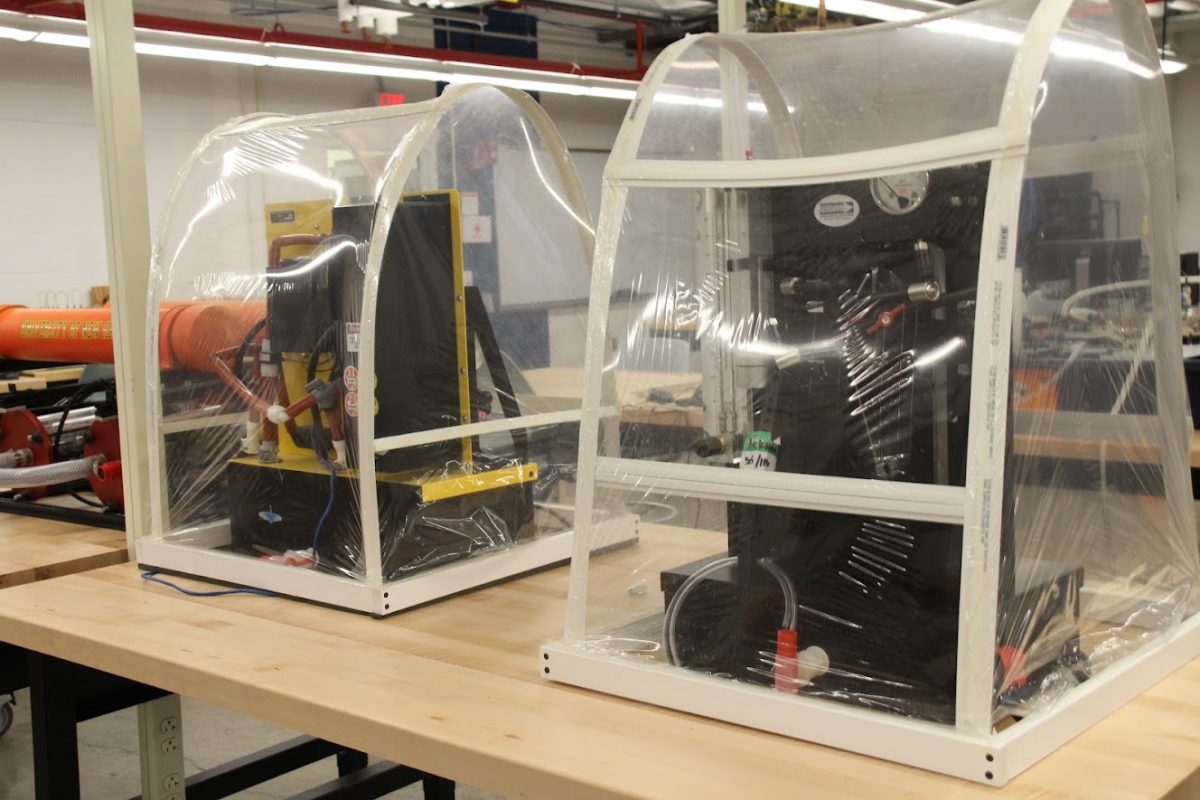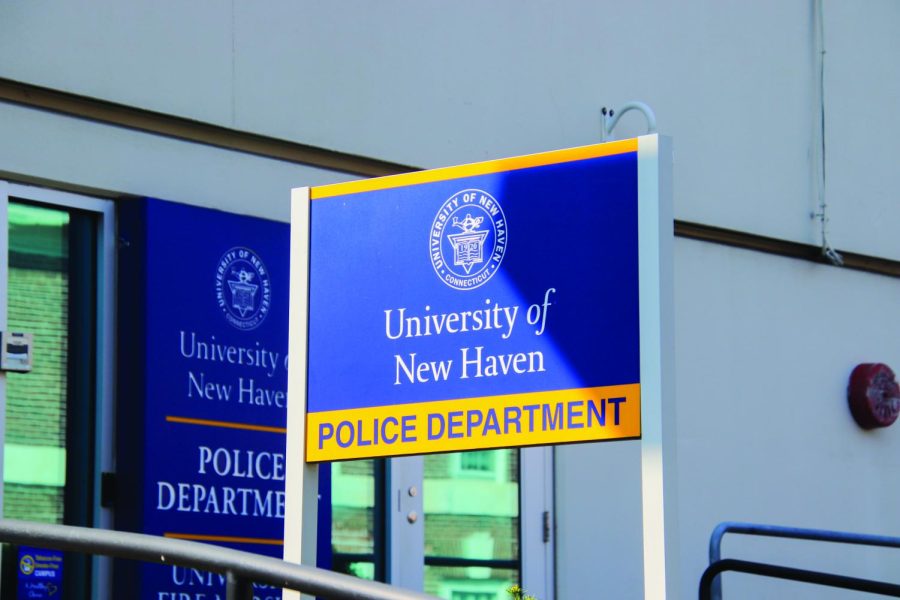The University of New Haven has taken another step in promoting general wellness across the entire campus community this past Monday, March 2.
An email was sent out from President Kaplan detailing the new initiative to make UNH a smoke free campus. This new initiative will ban all tobacco products, including, but not limited to, cigarettes, cigars, e-cigarettes, hookahs, chewing tobacco and all other tobacco or nicotine products.
Going into effect June 1, 2015, all tobacco use on both the West Haven and Orange campus will be prohibited from there on out. This new initiative was inspired by the Healthy People 2020 act, a national health promotion put forth by the Office of Disease Prevention and Health Promotion.
The initiative is designed to “encourage collaborations (to prevent tobacco use) across communities.” UNH is falling in line with Healthy People 2020 along with 1,500 other campuses that have banned tobacco use. Some of the neighboring schools include Quinnipiac, Northeastern and UMass Amherst.
“The decision to go Tobacco-Free and Smoke-Free comes at an exciting time in higher education and we are joining over 1,500 other institutions that are committed to health and wellness,” said Kara Beth O’Grady, Coordinator for Student Conduct & Technology Applications. “The official policy and necessary enforcement measures will be communicated by the June 1st start date. The policy is currently being written and reviewed by the committees and will be approved by the University administration.”
Anyone who walks around campus will notice that students and professors alike smoking cigarettes outside of academic buildings and dormitories. Arguably more popular are the aforementioned e-cigarettes. Resembling pens, they put out vapor as opposed to tobacco smoke, while still delivering nicotine to the user.
However, because they give off an atmosphere that promotes smoking, they have been banned with the rest of the tobacco delivering products.
Many students and faculty partake in smoking, and it will not be an easy transition for many who have developed the habit for years. According to the email sent out by President Kaplan, research shows that tobacco is the number one cause of avoidable death in the United States, and by establishing a Tobacco-Free and Smoke-Free Campus we will reduce exposure to carcinogens and asthma triggers.
This is important for many reasons, including the fact that the Federal Americans with Disabilities Act requires us to maintain an accessible campus that provides accommodation for students and employees with medical conditions, such as asthma, that are triggered by second-hand smoke.
This decision will also eliminate the litter caused by improper disposal of cigarette butts and allow facilities staff to focus their efforts on other areas of campus.
This initiative has been researched by a committee comprised of many students and faculty, including Dean Johnson and Undergraduate Student Government Association President Richard Rotella. There is also a smaller sub-committee is focusing on aspects of policy and implementation. The committee compiled a survey last year to gain statistics on smoking in the student body.
According to the survey, 73 percent reported they have never smoked while only five percent identified themselves as regular smokers. 75 percent of the respondents felt that smoking around buildings is a problem on campus. Furthermore, 67 percent of respondents were in support of making UNH smoke free. Nineteen of the respondents who support the initiative are smokers themselves.
Committee head Paula Cappuccia has been on the Smoke Free initiative committee for the past year and a half.
“We’ve been gathering research from several other universities in the country as well as the Connecticut Department of Health,” said Cappuccia. “We tried designating smoking areas 20 feet from buildings.”
This policy failed as it was very hard to enforce; the new initiative is much more concrete and enforceable.
There has been a lot of backlash by students on social media such as Yik Yak, many complaining that the tuition paid gives them the right to smoke. However, as addressed on the University’s page for the initiative, “there is no right under federal or state law that gives others the right to expose others to second hand smoke.”
While the transition will undoubtedly be a rocky one, Cappuccia explains that “the first year will be a learning year, in which smokers will be offered programs and incentives to eliminate smoking habits such as receiving a candy for putting out their cigarettes.”
The candy would be offered by a police officer or health services member, along with a card giving smokers resources such as websites and hotlines to break the habit.
“The second year will be when enforcement takes hold, with students and faculty facing administrative consequences for failure to comply,” said Cappuccia.
Health Services is trusting that the removal of cigarette butt disposal containers will not encourage littering as many have speculated. Taking effect June 1, this gives students and faculty a semester to beat the habit or find off campus locations in which to smoke.
“It wasn’t too long ago when people could smoke in classrooms at their desks; they got used to that change, they will get used to this one as well,” Cappuccia said.
“The University of New Haven is committed to focusing on educating our community about making healthy choices and refraining from tobacco use. We are not forcing anyone to quit using tobacco products, but rather stating they cannot be used on our campus any longer,” explained O’Grady. “We hope that current tobacco users will take advantage of the cessation opportunities we will be providing this spring. In order to make this change possible, we are hoping that the whole UNH community is proactive in educating others about the policy change. If you see someone smoking after June 1st, we are encouraging students, faculty and staff to politely explain the new policy and encourage the discontinued use of the tobacco product.”
Over the next few months, the University will provide information, education and data on smoking cessation programs in an effort to help those who would like to “kick the habit.”
“It is our hope that, by the time the policy takes effect, the number of smokers at UNH will have dropped significantly and that the entire campus will embrace this initiative,” said President Kaplan in his email,
“This change in policy will establish a campus culture of respect, wellness and sustainability. We are not judging or excluding people who choose to smoke; we are merely asking them not to use tobacco on the campus where it can impact others.”
For further information, please visit the University’s tobacco-free website at: http://www.newhaven.edu/tobacco-free. Questions and comments should be sent to [email protected].

















